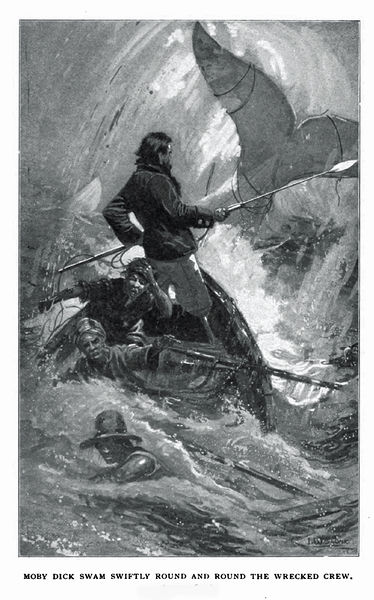At 'The New Yorker' (TNY), writers are allowed to pursue their obsessions. Staff Writer David Grann says it comes from a theory that tapping into writers’ excitements and interests will make them write something better. I think they’re onto something there. The magazine’s circulation has long since travelled past its namesake. Here in Melbourne, Grann’s session ‘The New Yorker: On Obsession’ (at MWF) was sold out. Grann was enormously generous at the session. He described his achievements humbly and shared many insights into his writing process.
Moderator James Button started by prompting Grann to share the how and why of his writing career. Grann said he feels fortunate to have ended up where he is. But when he started he didn’t know how he would get there, or that he would ever get there.
Grann always knew he wanted to be a writer, and says the journey to TNY was a, ‘long, slow evolution with an enormous amount of rejections.’ As a young writer he thought he wanted to write fiction but, he says, ‘I’m really bad at it.’ Once he realised that non-fiction could be entwined with storytelling he became more inspired, energetic and found opportunities. Writers like Gay Talese and Joan Didion were ‘revelations’. Grann said he came upon them late, but devoured them all.
Grann says the problems he had with fiction – such as creating and rendering characters and capturing dialogue – were solved by journalism. Finding and reading a transcript involving a character called ‘Orlie the Crab’ was when he realised that non-fiction was better than fiction. He was researching a piece on former US Congressman James Traficant. The ‘authenticity of dialogue’ sealed the moment. ‘This is what I wanted to imagine [in fiction] but never could,’ says Grann.
When writing his stories Grann looks for the elements of fiction: interesting characters, compelling figures (including obsessives) and subcultures or worlds that the stories allow him into. Grann pursues stories out of curiosity. Sometimes he’ll read just a few lines in a newspaper that will spawn a question, other times a story will evolve. The subject of his recent book, ‘The Lost City of Z’ (about Victorian explorer Colonel Percy Harrison Fawcett and his journeys in the Amazon) had its infancy in a different story about the world’s greatest Sherlock Holmes character. For any story to work Grann says, ‘You’ve got to love the subject matter. You’ve got to feel that the questions you need to answer just keep growing rather than closing off.’
Questioning his subjects has put Grann into some fairly curly physical situations. While researching a story on a giant squid he found himself in a small boat at sea during a fierce storm. On his quest for the story of ‘The Lost City of Z’ he became separated from his guide in the Amazon, walking in circles and feeling very lost. ‘At a certain point the Amazon all looks the same – like a white out in the snow, but with greenery,’ he says.
Yet he plays down these moments arguing that the more challenging aspects of his work are the structural elements of writing. A piece of a story can be missing, or sources may collude to create a kind of ‘hall of mirrors.’ For Grann this causes the greatest amount of frustration. He becomes obsessed with trying to find out what happened. ‘My quest is biographical, reportorial,’ he says. He looks for the end of a story, tries to solve mysteries, to sate a certain curiosity. The more I dig, the more I want to know. One piece leads to another. (Grann, paraphrased)
When doing biographical research writers need to interrogate their characters Grann says. He is interested in history from the inside out rather than the outside in. When writing historical pieces he wants to know how his subjects saw the world at that time. This approach was central to his research for ‘The Lost City of Z’. Its main subject, Fawcett, had an urge to explore. ‘These urges do have consequences,’ says Grann describing the devastation Fawcett left behind when he took his son into the Amazon and never returned.
An audience member asked if writing can be taught. Grann delineates between fiction and non-fiction, ‘I don’t think you could create a John Updike. He had an enormous gift,’ he says. But non-fiction in many ways is a craft that can be taught, ‘Some of it is observation,’ says Grann. Writers need to train their ear for dialogue and notice details like a person’s ticks or habitual phrases. They need to figure out the essence of a story and distil these. Grann modestly describes himself as an effective writer but not a great one. He aims to be transparent in his writing, ‘So the reader can almost be there the way I was there,’ he says.
‘It’s less about teaching. A lot of it is doing,’ says Grann. When he was starting out in his career he did anything he could to get clips. He would work for free. He wrote obituaries and about high school graduations. In a session the previous day Grann said that the central element to his career was the urge to write, ‘If you have that urge… just keep doing it.’
Hanging around – being there - is a part of Grann’s theory of reporting. ‘If [you’re] there you’ll see things,’ he says. If you hang around long enough your sources will forget you’re there and become themselves.
Button questions Grann on the future of long form. ‘It’s almost dead in this country,’ says Button. Grann concurs, ‘You cannot be in the business and not feel like an endangered species.’ But, says Grann, stories are things that are, ‘in some ways wired into our DNA… People have been telling stories for centuries and centuries… It’s always [been] a part of our culture.’
‘The truth is long form non-fiction is expensive,’ says Grann citing costs beyond salaries such as guards, satellite phones and living expenses. And long form takes time. ‘So much of media is now predicated on quickness, immediacy and speed. You can’t tweet it out,’ says Grann. But the Internet has allowed writers to reach other people more quickly and cheaply. Grann is hopeful for the future of long form, ‘because of that essential need [for stories] those stories will still remain. It’s hard to imagine it going away,’ he says.
A part of every writer’s life is rejection, and Grann is no stranger to it. ‘We’re all insecure creatures,’ he says. We all want our stories to be critically well received and read. When he writes, Grann quarantines the fear of failure. He focuses on what he can control, ‘the sentences, structure and the reporting,’ and writing something he can be proud of.
At TNY rejection has a different slant, usually when you’re turned down for an idea it’s for the right reasons (Grann, paraphrased). He talks about the way editors at TNY work with writers. They help with structure, to overcome obstacles and talk out riddles. They are enormously helpful he says. Editors and fact checkers take the story though a process that is ‘bigger than yourself,’ says Grann, ‘I always try to pay my tribute to them.’
TNY is associated with an excellence that Grann ascribes to people arriving at the magazine when they’re better at their craft. Staff at TNY care about the story. ‘It’s almost a simple mission,’ says Grann. The story is, ‘what unifies everybody there.’ Grann also says that the magazine insulates its staff from economics and external pressures – something that few magazines are able to do.
A question from the audience asks Grann how he thinks about readers when he’s writing. ‘I don’t know if I really have a sense of an ideal reader. I try not to think of my story with limitations,’ he says. Grann aims to write for everyone, asking the questions: How can I pull you in? How can I take you on this journey? He says you can write an extremely sophisticated story (one that plays with post modernism, revolutions, socialism or idealism for example). But these stories almost always include something compelling – such as a love story. As a story it needs to be pleasurable, told in the best way, but including smart things. Grann also thinks about how busy his audience is, and the competition his story has against the various gadgets that now distract us.
Getting the story is important too. Grann is persistent with sources he wants to talk to. He’ll ask a source for years to tell their story until they agree to speak. Grann advises other writers not to give up if a source says no. Never think there's a great secret. If they really don’t want [to talk] they won’t (Grann paraphrased). But if they do want to talk, and you're the one who stuck with it, you will get the story, he says. Grann explains to sources that he realises they are entrusting themselves to him, and that he will always be fair to them. When negotiating with sources Grann says writers should be themselves, be forthright.
Grann’s approach in this session was very much in accord with this advice. He was honest and forthright, and gave the audience a real sense of the story behind his stories. Above all was the commitment Grann has to the potential of his craft. ‘On Obsession’ was an apt title.



